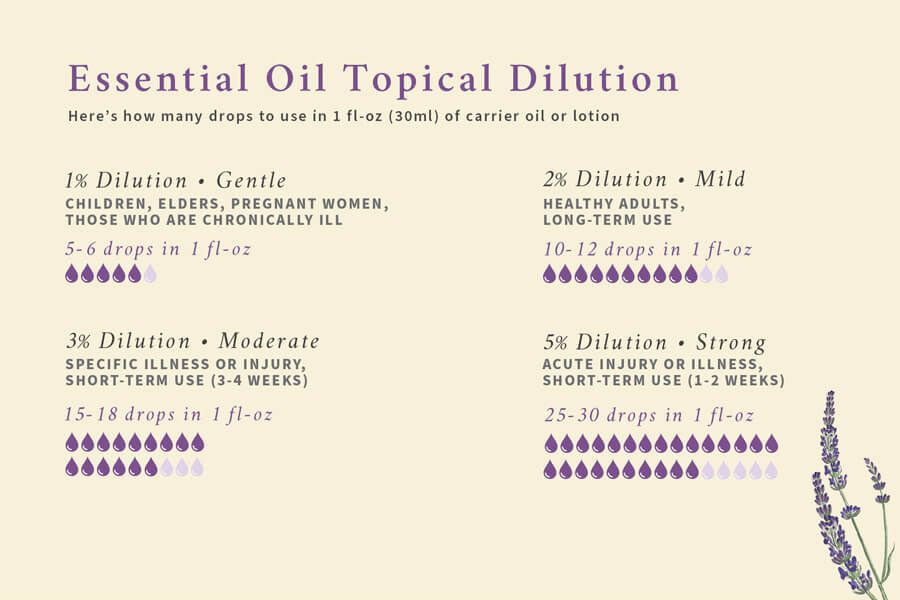Can I Use Fragrance Oil On My Skin?
What Are Fragrance Oils?
Fragrance oils are synthetic or natural aromatic compounds used to provide scent to products like candles, perfumes, lotions, and cleaning products (source). They are created in labs to either mimic natural scents or produce entirely new fragrances.
Fragrance oils differ from essential oils in that they do not contain the true essence of a plant. While essential oils are extracted directly from plant materials, fragrance oils are formulated from individual aroma chemicals (source).
Some of the most common uses for fragrance oils include scenting candles, soaps, perfumes, cosmetics, incense, potpourri, and cleaning products. They allow manufacturers to add consistent, long-lasting fragrance to their products.
There are two main types of fragrance oils: synthetic fragrance oils, which are made entirely from chemicals, and natural fragrance oils, which contain some natural ingredients like essential oils or absolutes derived from plants. Many commercial fragrance oils are a blend of natural and synthetic components (source).
Are Fragrance Oils Safe for Skin?
In general, fragrance oils are considered skin safe when properly diluted and tested ahead of time. However, some precautions should be taken, as certain oils can potentially cause skin irritation or allergic reactions in some people.
According to experts, fragrance oils that consist purely of essential oils are typically safer for skin contact than synthetic fragrance oils made from chemicals (source: https://www.maleeonline.com/2020/09/17/are-fragrance-oils-bad-for-your-skin/). This is because essential oils derive naturally from plants, fruits, and herbs.
When using fragrance oils, it’s recommended to dilute them to 1-5% in the product you’re making for skin application. Using oils at full concentration greatly increases the risk of irritation and sensitivity reactions (source: https://www.cierracandles.com/skin-safe-fragrances.html). It’s also advised to perform a skin patch test before widespread use.
Certain fragrance oils like cinnamon, clove, citrus, and mint oils are known to be more problematic for sensitive skin types. Diluting these oils properly and skin testing is especially important.
Overall, fragrance oils can be safely used on skin with proper dilution, testing precautions, and avoidance of known irritant oils.
Benefits of Using Fragrance Oils on Skin
One of the main reasons people use fragrance oils is for the pleasant and desirable aromas they provide. Fragrance oils contain concentrated scents that can evoke certain moods or emotions when applied to the skin. For example, some floral or fruity fragrances can have an uplifting effect, while warmer, muskier scents may be more relaxing. The variety of fragrance oil scents available means you can pick ones that align with your needs or preferences.
In addition to their pleasing smells, many fragrance oils also have benefits when applied topically to skin. The oils can add moisture and smoothness when included in body lotions, butters, and creams. Some people add a few drops of fragrance oil to their bath for a soothing aromatherapy experience. Fragrance oils are commonly used to scent homemade soaps, scrubs, and other DIY skin care products.
Overall, fragrance oils allow you to enjoy and benefit from customized, desirable fragrances. They can be uplifting, relaxing, and incorporated into skin care regimens.
Drawbacks and Precautions
While fragrance oils can provide pleasant scents, there are some potential drawbacks and precautions to be aware of when using them on your skin:
Fragrance oils may cause irritation or allergic reactions in some people. Those with sensitive skin are more prone to experiencing redness, itching, swelling, or rashes when fragrance oils are applied directly. It’s best to do a patch test before wide-scale use.
Some fragrance oils contain phototoxic ingredients that can cause increased sun sensitivity and burns when exposed to UV light. It’s wise to avoid sun exposure or use high SPF sunscreen when wearing phototoxic fragrance oils.
Fragrance oils should be kept away from the eyes, as they may cause stinging or irritation. Rinse immediately with water if contact occurs.

Fragrance oils, like essential oils, should always be kept out of reach of children. Accidental ingestion could be hazardous.
Best Practices for Safe Use
While fragrance oils are generally safe for use on skin, there are some best practices to follow for avoiding irritation and allergic reactions:
1. Dilute the fragrance oil in a carrier oil before applying directly to skin. Some recommended carrier oils are jojoba, coconut, or almond oil. A dilution of 5-10% fragrance oil is a good starting point.
2. Do a patch test on a small area of skin and wait 24 hours before more widespread use. This will help identify any potential allergic reactions.
3. Use fragrance oils sparingly at first until you know how your skin will react. Only 1-2 drops applied to wrists or pulse points is plenty.
4. Avoid exposing skin to UV rays immediately after applying fragrance oils. Some oils contain compounds that can increase sun sensitivity.
Properly diluting and testing fragrances for your skin type will allow you to safely enjoy their calming, uplifting benefits. Always monitor your skin’s reaction and discontinue use if any irritation occurs.
Which Fragrance Oils Are Best for Skin
When choosing fragrance oils to use on skin, lighter, more delicate scents often tend to be the safest options. Floral, fruity, and citrus-based oils like lavender, rose, lemon, and bergamot are typically well-tolerated by most skin types, according to https://www.cierracandles.com/skin-safe-fragrances.html. It’s best to avoid spicy, earthy, and resinous oils like cinnamon, clove, patchouli, and frankincense if you have sensitive skin or allergies.
Most body-safe synthetic fragrance oils are also okay for skin contact, as long as you avoid any known skin irritants. Organic and natural fragrance oils can be great sensitive skin-friendly options, but always patch test first. Some essential oils like chamomile, geranium, and neroli are gentle enough for sensitive skin in small dilutions of .5-1%.
Using Fragrance Oils in DIY Beauty Products
When using fragrance oils in homemade beauty products like lotions and creams, proper dilution is important for skin safety. A general guideline is to dilute fragrance oils to 1-3% of the total product formulation. For lotions and creams specifically, aim for 1-1.5% dilution to start (3qDBmpZey74). Fragrance oils are highly concentrated, so a little goes a long way.
The best carrier oils to use for dilution are those that complement your skin type. Jojoba, sweet almond, coconut, and apricot kernel oil are great for most skin types. Mix the fragrance oil with your carrier oil first before adding to creams or lotions. When storing your homemade products, use containers made of glass or stainless steel. Avoid plastic which can absorb fragrance over time (nikura.com).
Be sure to properly label any homemade beauty products containing fragrance oils with the full ingredients list. Indicate the batch date, expiration date within 6-12 months, and any usage instructions. Follow good manufacturing practices for cleanliness when making DIY skin care with fragrance oils.
Top Fragrance Oils for Calming and Uplifting
Certain fragrance oils are known for their calming and uplifting properties, making them ideal to use in aromatherapy or DIY beauty products.
For a calm and relaxed feeling, the top fragrance oils include:
- Lavender – With its sweet, floral, and herbaceous scent, lavender is one of the most popular oils for relaxation. Studies show lavender’s aroma can reduce anxiety and improve sleep quality (source).
- Chamomile – This oil has a sweet, fruity, herbaceous scent that many find soothing. Some research indicates chamomile oil can promote calmness and alleviate symptoms of anxiety and depression (source).
To uplift your mood and boost energy, go for refreshing citrus and minty scents:
- Lemon – The bright, zesty scent of lemon oil can improve mood, reduce stress, and increase focus (source).
- Peppermint – With its sharp, minty aroma, peppermint oil provides an invigorating sensation. It may improve cognitive performance and help alleviate fatigue (source).
You can also create custom fragrance blends by combining different oil scents to achieve your desired effect.
Signs of an Allergic Reaction
Some common signs of an allergic reaction to fragrance oils include:
Rash, redness, and itching of the skin. According to WebMD, fragrance allergies can cause skin rashes and hives that are red, bumpy, scaly, and very itchy (1). The rash may develop immediately after contact with the fragrance, or several hours later.
Swelling and blisters. Particularly around the eyes and mouth, swelling and fluid-filled blisters can occur in severe cases. The eyes may also become red, irritated, and itchy (1).
Trouble breathing. Fragrance allergies can trigger respiratory symptoms like wheezing, coughing, chest tightness, and difficulty breathing (2). Severe reactions may lead to asthma attacks in those with asthma.
Anaphylaxis risk. Though rare, perfumes and fragrance oils can potentially cause life-threatening anaphylactic reactions. Signs include swelling of the throat, severe difficulty breathing, rapid heart rate, dizziness and fainting.
If you experience any concerning symptoms after using a fragrance oil, discontinue use immediately. Seek emergency care if you have trouble breathing or swallowing.
When to See a Doctor
If a severe allergic reaction develops after using a fragrance oil on your skin, it’s important to see a doctor right away. Signs of a severe allergic reaction can include hives, swelling, trouble breathing, dizziness, or fainting. Prompt medical care is needed for severe reactions to prevent a dangerous drop in blood pressure or breathing issues.
It’s also a good idea to see a doctor if you experience persistent irritation, redness, or other reactions from fragrance oils. A doctor can help determine if you have developed an allergy or sensitivity. They may recommend avoiding particular ingredients or doing patch testing to pinpoint the problematic component. According to WebMD, a doctor can’t directly test for a fragrance allergy, so they will work with you to uncover links between your symptoms and exposure to fragrances.
For mild to moderate reactions, your doctor may first recommend discontinuing use of the particular fragrance oil that caused irritation. However, if symptoms recur with other fragrances, they may refer you to an allergist for patch testing. This involves placing diluted amounts of common fragrance ingredients on your skin to check for reactions. Patch testing can help identify specific fragrance allergens to avoid. With this knowledge, you can more safely select products that don’t contain your problem ingredients.




